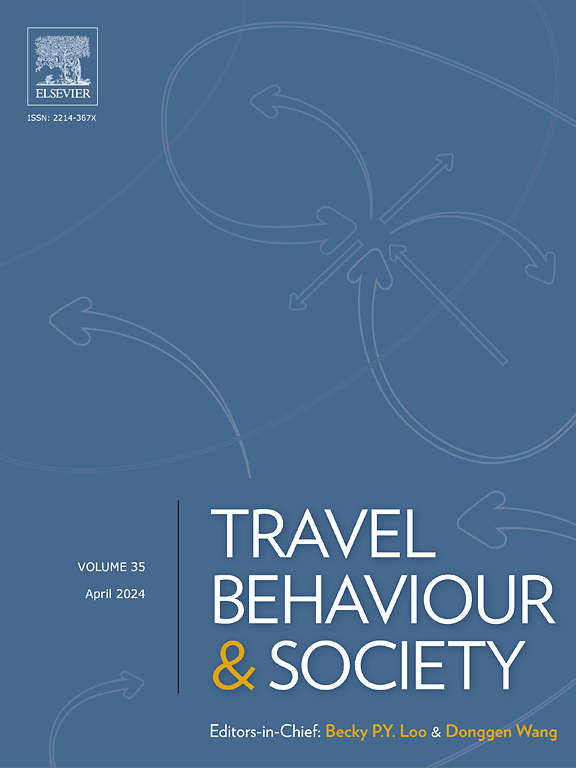Exploring the interaction between perceived risk and travel flexibility in daily mobility change: Evidence from Hong Kong’s COVID-19 pandemic
IF 5.1
2区 工程技术
Q1 TRANSPORTATION
引用次数: 0
Abstract
The COVID-19 pandemic has drastically altered urban transportation patterns, leading to significant changes in people’s daily travel behavior. Scholars have attributed this shift to individuals’ perceived pandemic risk, suggesting that higher perceived risk discourages daily travel. However, existing research has produced mixed results regarding the relationship between perceived risk and mobility. This study aims to clarify these conflicting findings by proposing that travel flexibility moderates the relationship between perceived COVID-19 risk and daily mobility. Based on online survey data from Hong Kong and employing a logistic regression model, our findings show that the impact of perceived risk on daily mobility varies according to individuals’ levels of travel flexibility. Specifically, individuals with low travel flexibility experience a significant reduction in mobility due to perceived risk, whereas those with high travel flexibility are relatively unaffected. This research underscores the complex interplay between perceived risk, travel flexibility, and daily mobility during the COVID-19 pandemic, highlighting the critical role that travel flexibility plays in understanding the relationship between perceived risk and mobility.
求助全文
约1分钟内获得全文
求助全文
来源期刊

Travel Behaviour and Society
TRANSPORTATION-
CiteScore
9.80
自引率
7.70%
发文量
109
期刊介绍:
Travel Behaviour and Society is an interdisciplinary journal publishing high-quality original papers which report leading edge research in theories, methodologies and applications concerning transportation issues and challenges which involve the social and spatial dimensions. In particular, it provides a discussion forum for major research in travel behaviour, transportation infrastructure, transportation and environmental issues, mobility and social sustainability, transportation geographic information systems (TGIS), transportation and quality of life, transportation data collection and analysis, etc.
 求助内容:
求助内容: 应助结果提醒方式:
应助结果提醒方式:


